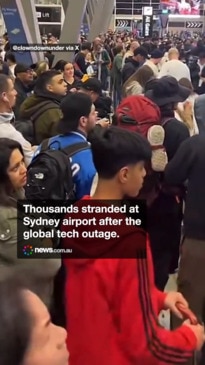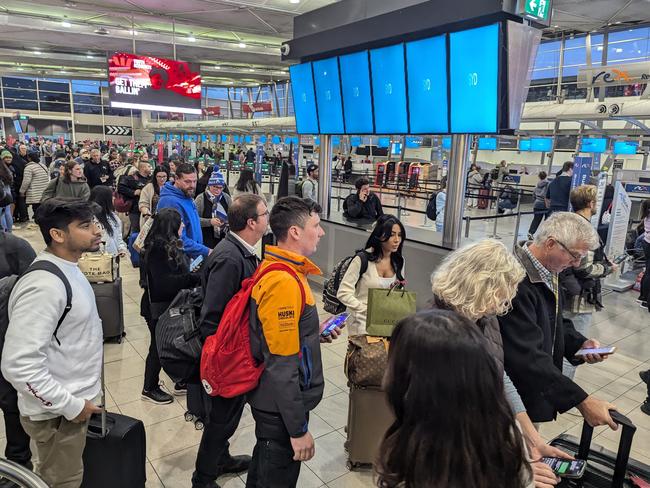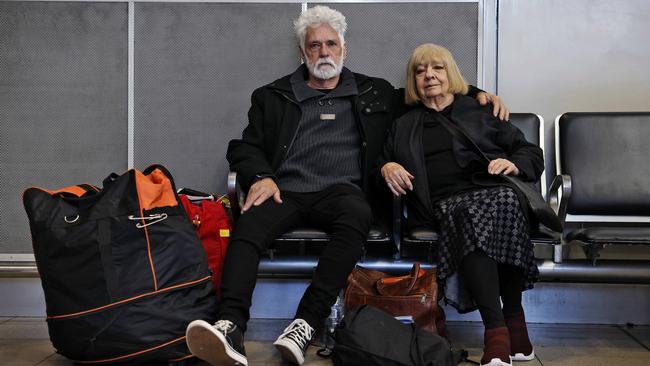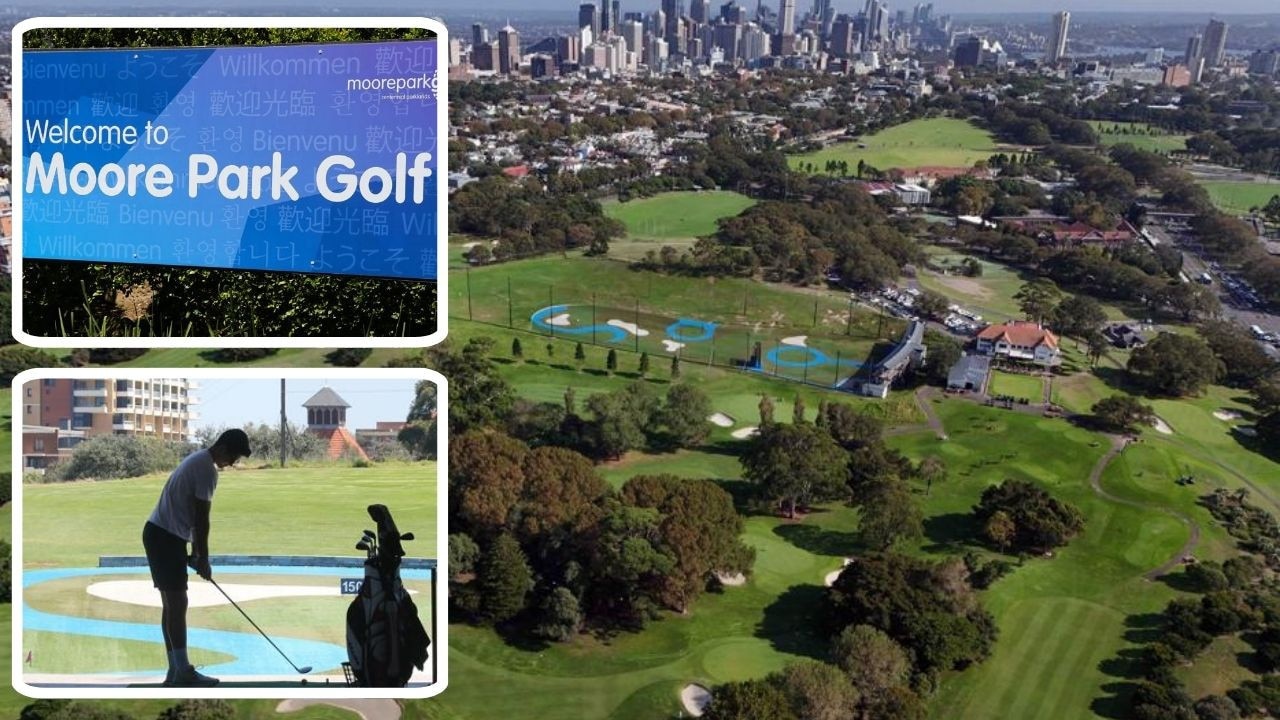Fraudsters close in as tech crash leaves NSW with a $200mil bill
The biggest tech crash in history will likely cost NSW more than $200 million, according to the state’s business authority. Meanwhile, individuals have been warned to be on the lookout for phishing scams.

NSW
Don't miss out on the headlines from NSW. Followed categories will be added to My News.
The biggest tech crash in history will likely cost NSW more than $200 million, according to the state’s business authority.
This comes amid warnings of a rise in phishing scams from hackers and fraudsters looking to cash in on the unprecedented CrowdStrike-triggered tech collapse that brought the world to its knees on Friday.
Businesses, emergency services and government departments ground to a halt when their computers crashed thanks to a corrupted Microsoft Windows update that CrowdStrike — a massive US-based cyber security company — pushed to the computers used by its customers.
Business NSW said the state was still counting the cost of the outage, but that the organisation’s economists had calculated that the figure will be massive.
“The expected loss in economic output for NSW might well exceed $200 million,” Business NSW CEO Daniel Hunter said. “Though the full impact of the outage remains ongoing, and the ultimate cost is yet to be determined.”

He said the devastating impact “highlights vulnerability within the global digital infrastructure” and showed the need for a reliable back up in the face of a repeat event.
“While some losses may be recouped in the coming week, certain sectors like tourism face more likely unrecoverable losses,” he said.
“Retail and online trading, particularly as we move towards a cashless economy, would likely have been more severely impacted.”
Worldwide, the disaster is estimated to have cost billions.
CrowdStrike released a lengthy apology statement explaining the situation was not a cyberattack and was caused by “a defect” in an update for Windows users.
The company said it was working to restore systems.
Australian Retailers Association CEO Paul Zahra said the biggest issue now was the rising rate of phishing and imitation scams with an “exponential increase” in intelligence reports on Friday night.
“That’s a massive issue so we are asking customers to remain vigilant”.

On Saturday, Home Affairs Minister Clare O’Neil urged Australians to “be careful” and warned this was the period where scammers and hackers were looking to capitalise on the outage through phishing and imitation scams.
“What we’re hearing…some individuals (and small businesses) are receiving emails from people who are pretending to be CrowdStrike or are pretending to be Microsoft, and indicating that you need to put in bank details to get access to a reboot,” she said.
Ms O’Neil urged Australians to “just stop” and “don’t put in any details” if they come across emails, texts or calls that “look a little bit funny”.
“Stop,” she said. “Don’t give any personal information and then certainly don’t put in any bank details or money.
“Then just step back and think, have a look at the communication that you’ve just received, and just ask ‘Does it make sense for you?’.”
Ms O’Neil said Australia was now in the “recovery phase” of what could have been the biggest IT outage in history and warned there could be short term teething issues.
Cybersecurity expert Troy Hunt said: “This is effectively the Y2K bug we were warned about two and a half decades ago.”
He said a postmortem as to how the update came to crash the system would reveal how to avoid a repeat of the problem, and whether it was human error or a problem with an automated system.

Meanwhile, impacted businesses began coming back online on Saturday.
Mr Zahra said impacted supermarkets were operating again.
“There is a backlog with online orders, they are working furiously to rectify and get back on track,” he said. “Tens of thousands of deliveries will be delivered over the weekend to catch up from the disruption from Friday.”
A Coles spokesman confirmed all supermarkets across Australia were open and trading on Saturday, though some impacts of the outage may continue.
“Some registers may be temporarily unavailable while we fully recover,” the spokesman said. “We are putting on additional team members to assist customers with their shopping, and we thank everyone for their patience.”
A Commonwealth Bank spokesman confirmed their services, including NetBank, the CommBank app, CommBiz, merchant payments and ATMs are still available.
Westpac and National Australia Bank have also confirmed there are no impacts to customer-facing operations.

A state government spokesman said most of its services that were impacted were back online.
There were no impacts to health services, while train services on the Hunter and Southern Highlands lines resumed on Friday evening after a brief interruption, the spokesman said.
Australian Airports were operating as normal yesterday after mass delays.
CrowdStrike’s share price took a hit from the disaster with about US$15bn being wiped off its share price before making a recovery.
Perhaps ironically, the company has been advertising to hire a director of public relations. The job ad posted about three weeks ago was looking for a PR director to be based at North Sydney.
One Aussie was quick to spot the ad and share it on X, formerly Twitter, on Friday after the crisis struck. “CrowdStrike has been looking for a new PR boss, based in North Sydney. Any takers?” it read.
The ad showed seven people had clicked “apply” before it was taken down.
It is unknown if this is because there was a successful applicant or if the company thought it was unwise to advertise while it was at the centre of a global PR disaster.
Do you know more? Message 0481 056 618 or email tips@dailytelegraph.com.au




